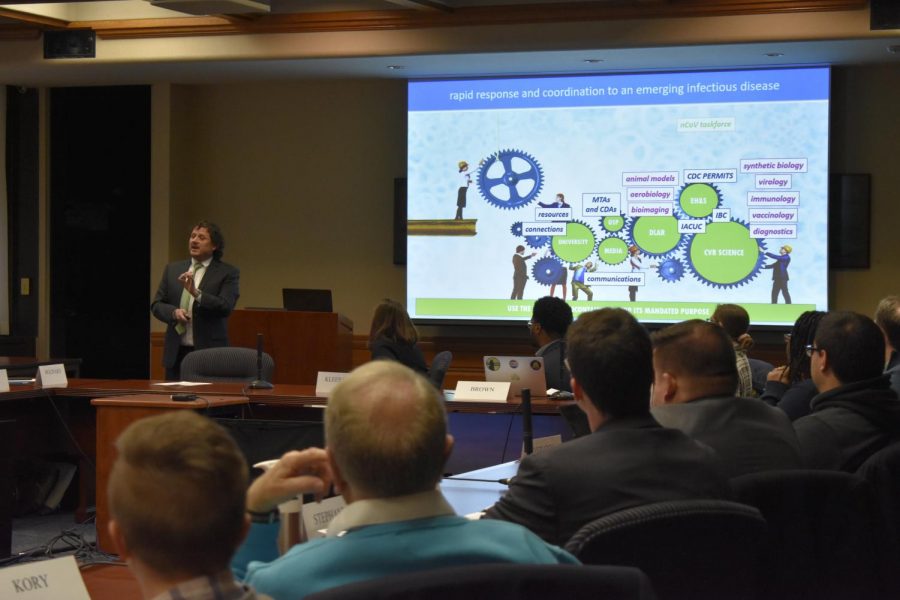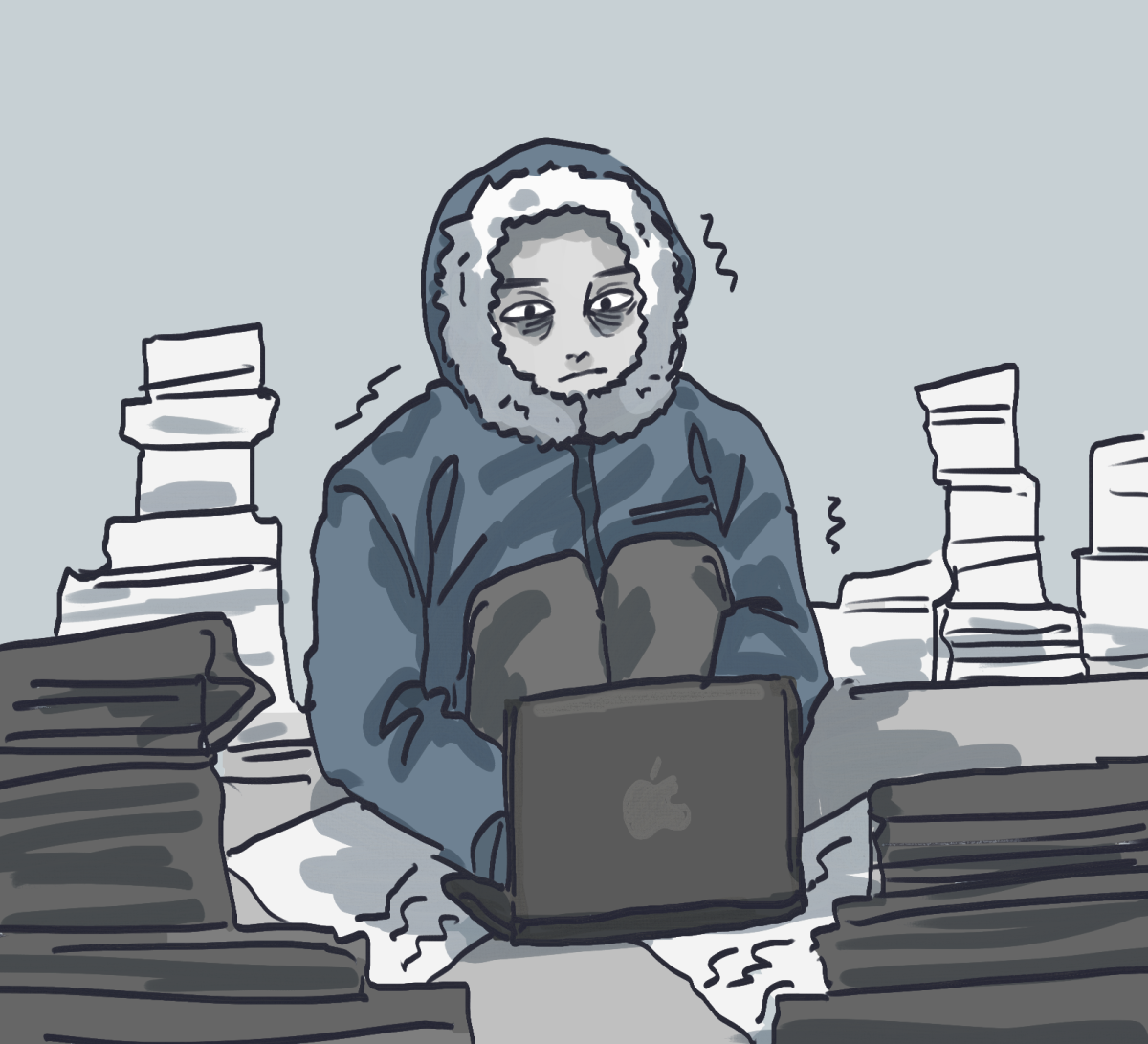Senate Council discusses coronavirus effects at Pitt
Romita Das | Staff Photographer
Dr. Paul Duprex, director of Pitt’s Center for Vaccine Research, speaks about COVID-2019 at a February Senate Council meeting.
March 19, 2020
With the effects of the global SARS-CoV-2 coronavirus pandemic felt internationally, people are clamoring for a vaccine.
Pitt researchers led by Dr. Paul Duprex have made recent strides in developing a vaccine and testing methods since receiving the virus in mid-February, but are still years away from creating a vaccine available nationwide, according to Arthur Levine, the senior vice chancellor for the health sciences and dean of the school of medicine.
“Duprex was able to reduce the virus to successfully infect an animal model with the disease, and we are hopeful that that will be able to be turned into a useful vaccine,” Levine said. “It will probably be one to two years until we have a usable vaccine though.”
Duprex’s vaccine development was just one topic discussed at Thursday’s Senate Council meeting held remotely via teleconference. The council focused on various aspects of campus life affected by the coronavirus, including how the University downgrading impacts students remaining on campus, remote mental health resources, budgetary concerns and plans to convert current residence halls to UPMC facilities.
Levine said it was fortunate that Duprex, the director of Pitt’s Center for Vaccine Research, had access to the disease, because it allowed UPMC to generate tests for the coronavirus more rapidly.
“It was fortunate that Paul had the virus, because the test depends upon having the virus itself or its sequence to generate the test,” Levine said.
UPMC opened a specimen-collecting site for patients with symptoms consistent with COVID-19 in Pittsburgh’s South Side. Patients must have a physician referral approved by UPMC’s infection prevention team and an appointment to have their specimen collected for testing by either UPMC or public health authorities.
Beyond developing a vaccine, Pitt is taking further steps to assist UPMC facilities which may become overcrowded in the coming weeks. Chancellor Patrick Gallagher said Lothrop Hall will be used as supplemental housing for medical staff, and Pitt is considering making additional halls available for patients.
“It is under active consideration about whether some of our facilities will be made available to UPMC as their health system gets challenged,” Gallagher said. “In fact, Lothrop is presently being emptied of any remaining students to offer housing for medical personnel who are working extra shifts and can’t go home.”
Pitt also took extra steps this week to stay in line with social distancing measures outlined by public health officials by reducing its operating presence. Kenyon Bonner, the vice provost and dean of students, announced in an email that the approximately 500 students who remain on campus in residence halls will face numerous new restrictions.
These include possibly being asked to relocate rooms or residence halls on Monday, as well as restricting residence hall access to students who have registered with Panther Central to remain on campus.
While Pitt is not forcing students to leave, Gallagher said the University will only be providing essentials like housing and take-out dining.
“We’re not telling them they have to leave because this might be the best place they can be,” Gallagher said. “We will be only providing the bare essential services. There won’t be libraries, study halls or communal spaces.”
One student service that will move online is the University Counseling Center. Bonner said the counselors are being trained in telemental health this week and hope to be available next week for students.
“We are still working through certification and licensing issues, but we hope to be up and running next week,” Bonner said. “Counselors have reached out to current clients and will be accepting new ones.”
He also said Pitt will provide additional online mental health resources for students.
“We also will be putting out online resources for students to cope in this type of environment,” Bonner said. “This is a quick transition, so there will be some bumps in the road, but that is our intent to continue to provide this support.”
Despite budgetary concerns, Gallagher said Pitt will continue to pay all employees and will work with contract suppliers to minimize their impact. He said Pitt is actually in a better economic condition compared to other universities and will focus on these concerns later this year.
“On the budgetary side, we have the resources to withstand these shocks,” Gallagher said. “In the last year, we restructured our debt and were in a favorable condition getting ready for construction projects.”
Gallagher said downsizing University operations is necessary to stop the spread of the coronavirus not just at Pitt, but throughout the country.
“Not every step we’re taking is entirely about ourselves,” Gallagher said. “While we’re taking these steps to mitigate the risk to our students, faculty and staff, we’re also doing it because it has to be done comprehensively throughout society if we’re going to slow this down.”




